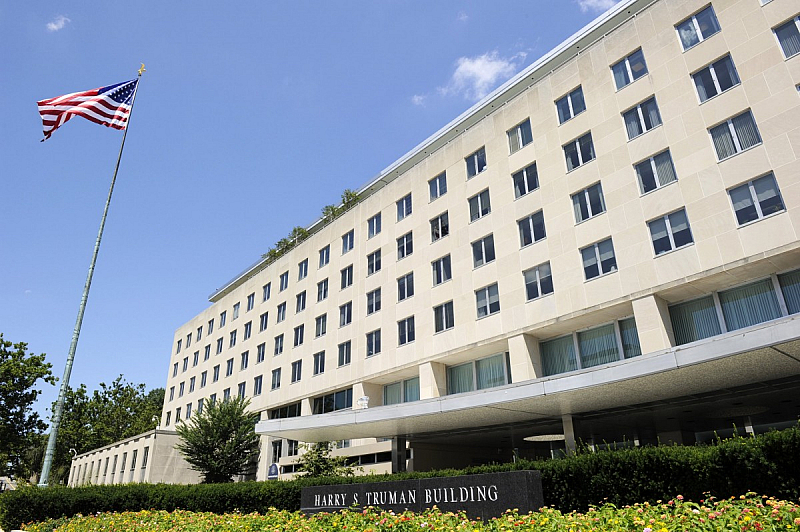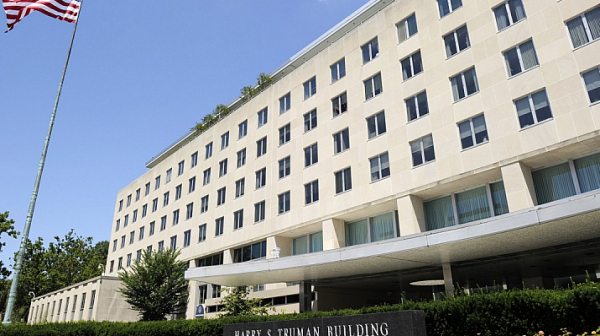
[ad_1]

Foreign investors remain concerned about the rule of law in Bulgaria. Corruption is endemic, especially in large infrastructure projects and in the energy sector. Investors cite other issues that hamper investment, such as unpredictability due to frequent regulatory and legislative changes and a slow judicial system.
Since early 2020, there have been doubts about the government’s commitment to honoring its contracts, even with US investors. A key factor to monitor will be the fairness of these negotiations. Another US company faces long-term regulatory hurdles in its attempts to enter the energy market, according to a US State Department report on the investment climate in Bulgaria, cited by BGNES.
Many investors see Bulgaria as an attractive destination with government incentives for new investments. The country continues to offer one of the cheapest labor in the EU and low and fixed corporate fees and income taxes. However, the constant increase in wages, which significantly exceeds the growth rate of labor productivity, can gradually distort this competitive advantage.
The COVID-19 pandemic sent a blow to the Bulgarian economy, prompting large-scale cuts and a new GDP calculation for 2020 from around 3% growth to 3% contraction.
The pandemic has severely affected a wide range of sectors. The Bulgarian automotive sector, which mainly specializes in the production of spare parts, has suffered due to the disruption of global supply chains. The tourism, transport, logistics and aviation sectors have been hit hard by the crisis. In contrast, the information technology sector is developing relatively well.
The report notes Bulgaria’s accession to the eurozone ERM II waiting room, noting that the adoption of the euro would completely eliminate currency risk and help reduce transaction costs with some of the country’s key trading partners.
There is a lack of legal restrictions on foreign ownership or control of companies and growth in software development, business process outsourcing, and technical support services. The IT outsourcing and back office sectors have attracted several US and European companies in Bulgaria and many of them have created global and regional service centers in the country. US and foreign investors have been attracted to the auto sector in recent years.
However, it is emphasized that some US investors have run into major problems, such as two large US investors who have been forced to enter into negotiations to terminate their long-term government contracts. In another case, a US company faces bureaucratic hurdles in its efforts to compete with Russia’s state monopoly in the energy sector. The most common problems investors face are corruption issues, the rule of law, frequently changing legislation and poor law enforcement.
Transparency International’s Corruption Perceptions Index (TI) for 2018 ranks Bulgaria last among EU countries and 74th out of 180 countries.
In general, there are no restrictions for foreign and local private entities to create and own a business in Bulgaria. The Offshore Companies Act lists 28 activities (including public procurement, exploitation of natural resources, national park management, banking, insurance) prohibited for companies registered in offshore areas with more than ten percent foreign participation. However, it should be noted that this law allows these companies to do business if the physical owners of the parent company are Bulgarian citizens and are known to the public, if the shares are publicly traded or if the parent company is registered in a country in which Bulgaria has double taxation agreements. Bulgaria does not have a specific law or an established mechanism to verify individual foreign investments. A potential foreign investment may be considered based on the potential risk to national security or through the Anti-Money Laundering Measures Act. As of April 2020, Bulgaria has not taken concrete steps to implement the EU’s investment evaluation directive of April 2019, according to the report.
With regard to small and medium-sized enterprises, it is mentioned that Bulgaria usually supports their creation and development in connection with EU-funded innovation and competitiveness programs and with a special focus on export promotion. The Bulgarian State Development Bank (BRD) is committed to supporting small and medium-sized enterprises in Bulgaria, but the recent granting of loans to large companies has cast doubt on this.
Bulgaria has lost two spots and ranks 61st (out of 190 economies surveyed worldwide) in the World Bank’s Doing Business Index for 2020, achieving the lowest score in the category. “Opening a new business” (position 113). The relatively large number of administrative procedures is to blame for this result.
In general, the regulatory environment in Bulgaria is characterized by complexity, lack of transparency, and arbitrary or weak implementation. These factors create incentives for corruption. Bulgarian legislation provides for 38 activities that are subject to licensing. Public procurement rules are sometimes tailored to certain local business interests. The law requires that all provisions be substantiated (with respect to national security, environmental protection or the personal and material rights of citizens) and requires an analysis of the costs and benefits of each proposed legislation. However, this requirement is often ignored when Parliament considers bills.
The country’s budget is evaluated as transparent and in accordance with international standards and principles. Public debt data is publicly available, but debt data accumulated by state-owned companies is not, according to the report.
The section on the judiciary establishes that the Constitution approved in 1991 serves as the basis of the legal system and establishes an independent judiciary composed of judges, prosecutors and investigators.
The judiciary remains one of the most unreliable institutions in the country, with widespread reports of nepotism, corruption, and undue political and business influence. Despite some improvements, the busiest courts in Sofia continue to suffer severe delays, limited resources and ineffective procedures that prevent prompt and fair justice, and trials often take years.
Although Bulgaria has adequate resources to enforce property and contractual rights in accordance with local law, in practice the public governance of investment disputes is slow and often requires the highest level of intervention. Investors believe that jurisprudence is inconsistent and that national legislation is used to deter competition from foreign investors.
Attention is also paid to the Commission for the Protection of Competition, which has the function of supervising competition in the market and compliance with the Law on Protection of Competition. The law, adopted in 2008, aims to implement EU rules that promote competition. It prohibits monopolies, restrictive business practices, abuse of market power, and certain forms of unfair competition. Monopolies can only be legally established in specific categories of strategic industries. In practice, however, the Competition Law is applied inconsistently and the Commission for the Protection of Competition is perceived as an object of influence that exceeds its powers.
With regard to the fight against corruption, it is emphasized that there has been some progress in the fight against petty corruption. Widespread corruption at a higher level, especially in public procurement and the use of EU funds, remains one of the most difficult problems in the investment climate in Bulgaria. Human trafficking, drug and smuggling channels contribute to corruption in the country. Although it has the necessary legislation and specialized institutions in the fight against corruption, the investigative capacity of law enforcement agencies remains limited and authorities often choose low-level, easy-to-prove cases. As a result, Bulgaria has yet to convict a corrupt senior official. There are several cases of high public interest, such as the alleged drainage of millions from the state treasury or EU funds, in particular those involving public tenders for large energy and infrastructure projects. Court investigations are often perceived as selective or politically motivated and generally end in acquittals after a lengthy trial. / BGNES